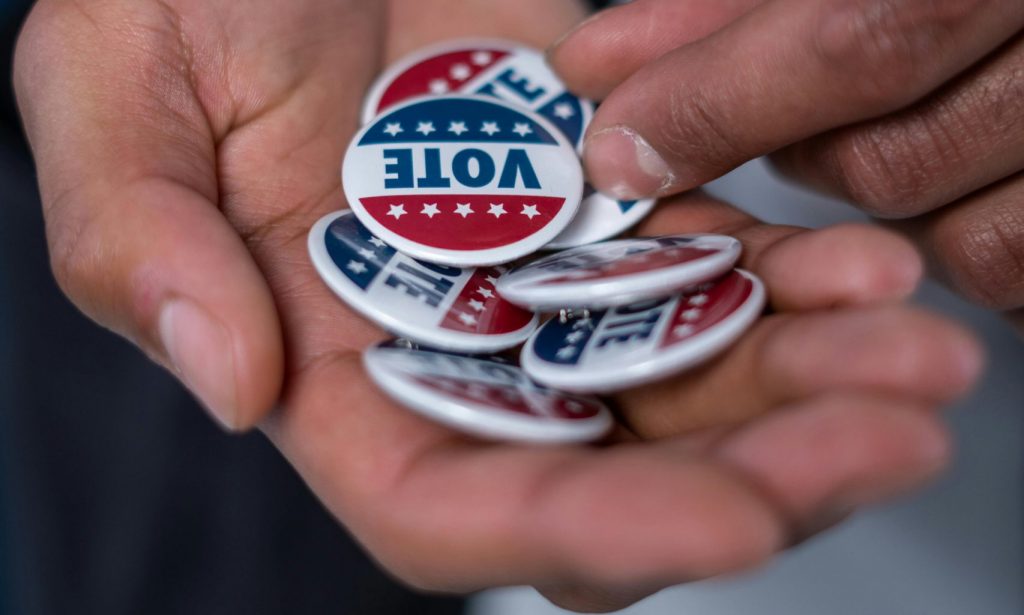
We have written repeatedly how Arkansas’ ballot initiative process has become the opposite of what it was intended to be.
Its original intent was to provide citizens a way to pass laws on their own. But today, powerful special interests can use the ballot initiative process to enact harmful measures. If the Arkansas Legislature does not enact good laws that bring accountability and transparency to the ballot initiative process, these problems will simply continue to get worse.
Many Arkansans may not realize just how many times the ballot initiative process has been misused in recent years. Below are just a few examples of deceptive or harmful ballot proposals offered in Arkansas since 2012. Other bad measures were proposed from 2012 to 2024, but this list should provide a glimpse of how special interests who want to enact harmful legislation have relied on the ballot initiative process.
Nancy Todd’s Poker Palace Amendment (2012)
In 2012 Nancy Todd’s Poker Palace and Entertainment Venues, LLC, circulated petitions in support of a constitutional amendment letting the company run casinos in Pulaski, Miller, Franklin, and Crittenden counties.
The proposal would have written Nancy Todd’s Poker Palace into the state constitution, giving the company a monopoly over casino gambling in Arkansas.
The amendment’s broad definition of casino gambling legalized practically any wager of any kind, and the measure made it clear that the Arkansas Legislature would not regulate casino gaming in Arkansas.
At the time, Arkansas Attorney General Dustin McDaniel, Family Council Action Committee, and others expressed serious concerns about this amendment.
The measure’s sponsors raised and spent approximately $61,000 in support of the measure — most of which apparently was used to hire petition canvassers to gather signatures for the measure. It ultimately failed to make the 2012 ballot.
The Arkansas Medical Marijuana Amendment (2016)
In 2016 supporters of the Arkansas Medical Marijuana Amendment used a clever and misleading advertising campaign funded by the marijuana industry to deceive people into writing marijuana into the state constitution.
The amendment made it possible for anyone with pain or nausea to qualify to smoke “medical” marijuana — which is why many of the groups and individuals who opposed the measure said it was really nothing more than recreational marijuana by another name.
It also gave a handful of businesses a powerful monopoly over the marijuana industry.
Arkansans United for Medical Marijuana spent more than $885,000 hiring petition canvassers and running ads in support of the amendment. The Arkansas Supreme Court declined to remove the measure from the ballot. The amendment passed by a vote of 53% to 47%.
The Arkansas Casino Gaming Amendment (2018)
In 2018 the group Driving Arkansas Forward spent $7.1 million on its campaign to place the Arkansas Casino Gaming Amendment on the ballot. Most of the group’s funding came from the organizations associated with gambling in Oklahoma.
The amendment authorized casinos in Garland, Crittenden, Pope, and Jefferson counties.
Driving Arkansas Forward spent hundreds of thousands of dollars hiring canvassers to circulate petitions for the amendment.
Once on the ballot, the group ran misleading television ads implying the casinos would generate tax revenue for better roads in Arkansas.
But the Arkansas Department of Transportation pointed out at the time that nothing in the amendment provided tax funding for Arkansas’ roads or highways. Most of the tax revenue collected from casinos under the amendment goes to legislative bodies to spend as they see fit.
However, Driving Arkansas Forward ran the ads on television anyway. The amendment passed in 2018 by a vote of 54% to 46%. To date, there is no evidence that tax revenue from casino gambling has made Arkansas’ roads any better than they were in 2018.
Marijuana Amendment Issue 4 (2022)
In 2022 marijuana industry insiders proposed Issue 4, a constitutional amendment legalizing marijuana in Arkansas and giving a handful of businesses an unregulated monopoly over its cultivation and sale.
Issue 4 would have eliminated all taxes on medical marijuana and set a very low tax rate on retail marijuana sales. State and local officials would have been unable to raise taxes on marijuana, and city councils and quorum courts would have been unable to regulate marijuana use.
Issue 4’s supporters spent more than $14 million in support of the measure. They hired petition canvassers to gather enough signatures to place the measure on the ballot, and they ran deceptive TV advertisements featuring video footage of Little Rock Police.
In response, Issue 4’s opponents had to form a grassroots coalition against the measure. They also had to spend some $2 million on the campaign to spread the truth about Issue 4. In the end, voters rejected the amendment by a vote of 56% to 44%.
Arkansas Abortion Amendment (2024)
In 2024 the group Arkansans for Limited Government raised and spent more than $700,000 on an effort to write abortion into the Arkansas Constitution.
The Arkansas Abortion Amendment would have prevented the State of Arkansas from restricting abortion during the first five months of pregnancy — which is more extreme than Roe v. Wade, allowing thousands of elective abortions on healthy women and unborn children every year.
The measure also would have nullified all state laws that conflict with the amendment — jeopardizing basic abortion regulations like parental-consent and informed-consent requirements and paving the way for taxpayer-funded abortion in Arkansas. It also contained various exceptions that would have permitted abortion up to birth in many cases. The amendment’s language did not necessarily make it clear to voters just how far-reaching the measure could be.
The amendment’s backers hired more than 260 canvassers to circulate petitions to place the measure on the ballot. During recent committee testimony at the Arkansas Legislature, individuals came forward alleging that canvassers for the abortion amendment violated state law and were paid bonuses for “altercations” with pro-lifers who opposed the amendment.
The Arkansas Supreme Court disqualified the abortion amendment after determining its backers failed to comply with important state laws.
Arkansas Marijuana Amendment (2024)
In 2024 the group Arkansans for Patient Access spent $1.9 million on a proposal drastically expanding the Arkansas Medical Marijuana Amendment. Most of the funding came from members of the marijuana industry, and the group spent it primarily on petition canvassing, consulting services, and legal services.
All told, the amendment would have made more than 30 changes to Arkansas’ constitution. Among other things, the amendment would have given a handful of businesses a monopoly over marijuana in Arkansas, and it would have removed restrictions that protect children from marijuana marketing.
It would have given free marijuana cards to immigrants and out-of-state residents who come to Arkansas to use marijuana.
Under this measure, marijuana users would no longer have to show they suffer from a specific medical condition listed in state law — which would have made it easier to use marijuana recreationally.
It also failed to limit the amount of THC in marijuana products.
All of this would have meant more marijuana in Arkansas.
The way the measure was crafted, it was not clear to the average voter just how far-reaching many of its proposed changes were.
Opponents of the measure filed a lawsuit arguing the marijuana amendment was misleading. The Arkansas Supreme Court agreed and issued an order against the amendment just days before the 2024 election.
Conclusion
The Arkansas ballot initiative process was passed by voters in 1910, giving them the constitutional right to propose laws by circulating petitions and placing measures on the ballot for a statewide vote. This process served Arkansans well for almost 100 years. But over the past century, the cost of running a political campaign has grown, and today the initiative process is out of reach for virtually everyone except wealthy special interests who want to change Arkansas’ constitution or laws for their own benefit.
Today the Arkansas Constitution is for sale — and it’s cheap. What was once a form of direct democracy has become just the opposite. It is a tool of the powerful that they can use to impose their will on the rest of us. Something needs to be done.
Right now lawmakers in Little Rock are considering several good bills that would help address serious problems with Arkansas’ initiative process. If the Arkansas Legislature does not act now, the problems with the ballot initiative process will only continue to worsen.
Articles appearing on this website are written with the aid of Family Council’s researchers and writers.




